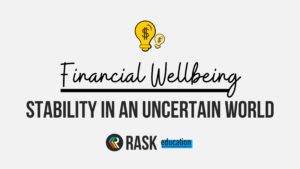In the video below, Owen explains Financial Services Guides (FSG), Product Disclosure Documents (PDS) and Terms for the finance industry — and what to look for.
It’s boring but it’s IMPORTANT!
If you’re in Australia and want to invest for retirement (e.g. in Super), achieve a savings goal (with a high-interest bank account) or you’re signing up for insurance (e.g. car insurance), you should read and understand:
- Financial Services Guides (FSG)
- Product Disclosure Statements (PDS), and
- The Terms & Conditions (T&Cs)
FSGs
FSGs are for financial SERVICES.
Therefore, you should get one when you see a financial planner, adviser, or if you receive advice online (read our post: the difference between personal and general advice).
When will I get it?
An FSG should be given to you when — or before — you receive financial advice. A financial adviser should give you one, or you should be able to find it on their website (then read it).
It takes 2 minutes to read an FSG and they’re uber-easy to understand (if they’re not, let them know!).
In an FSG you’ll find:
- The name of the company
- The financial licence number (AFSL). Cross check the number with the ASIC website.
- The types of services they offer
- How to make complaints
If the company doesn’t have an FSG or AFSL number, it might not be legitimate!
PDS
The PDS should tell you everything you need to know about a ‘financial PRODUCT’, such as:
- A Superannuation fund
- Managed fund
- Insurance (also read the terms and insurance schedule)
A PDS includes:
- The fees & costs
- Some risks
- The name of the company offering the product
- Some tax information
Every ‘financial product’ should have a PDS. Please do yourself a favour and spend 5 minutes reading it.
Terms
“I love reading the terms and conditions” – said no-one ever.
Terms are boring, full of legal jargon and can be really confusing or unfair. But they’re really important, especially in finance.
In the terms (sometimes called “fee guides” or “fee schedules”) you will find:
- The finer legal details of the ‘contract’
- Important information on the risks (e.g. for a share brokerage account)
- The names of the parties involved
- Your obligations
- More information on fees, costs and the risks of you losing money
[ls_content_block id=”27643″ para=”paragraphs”]



